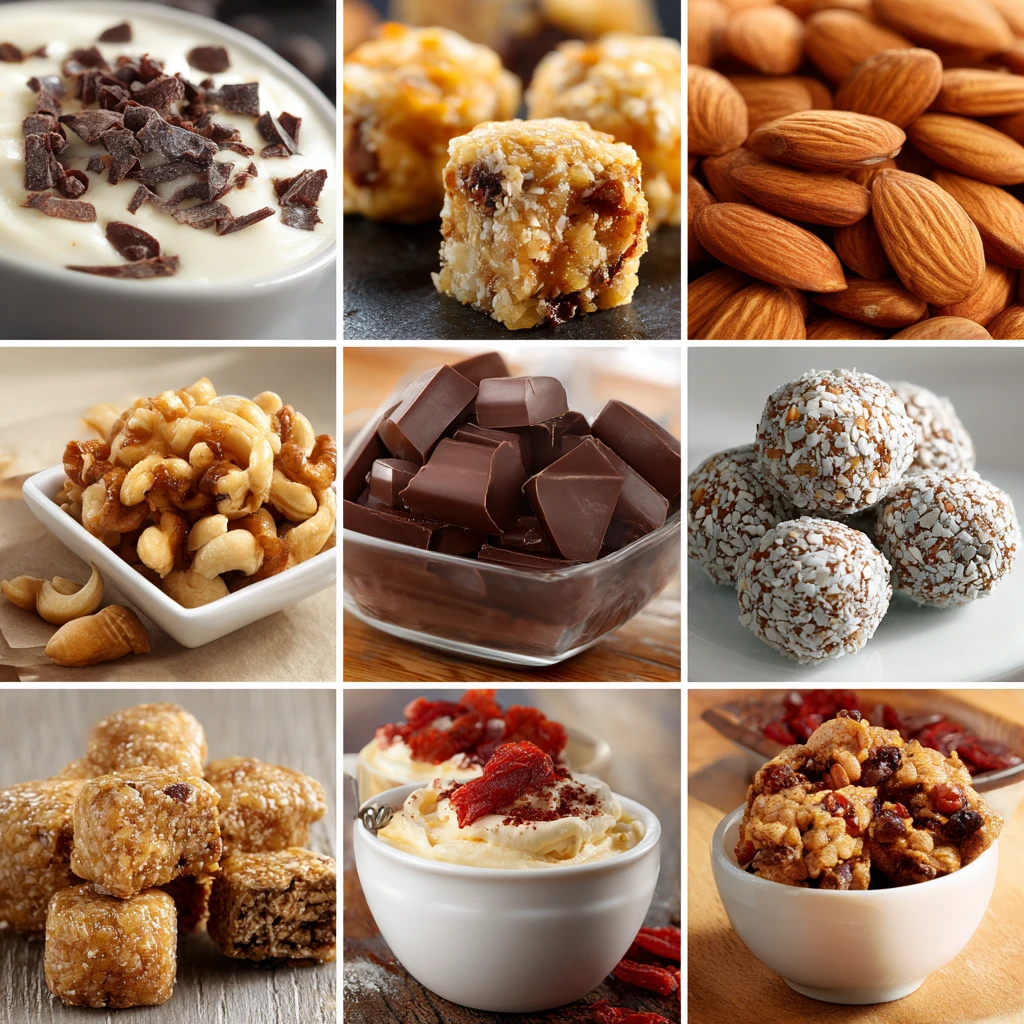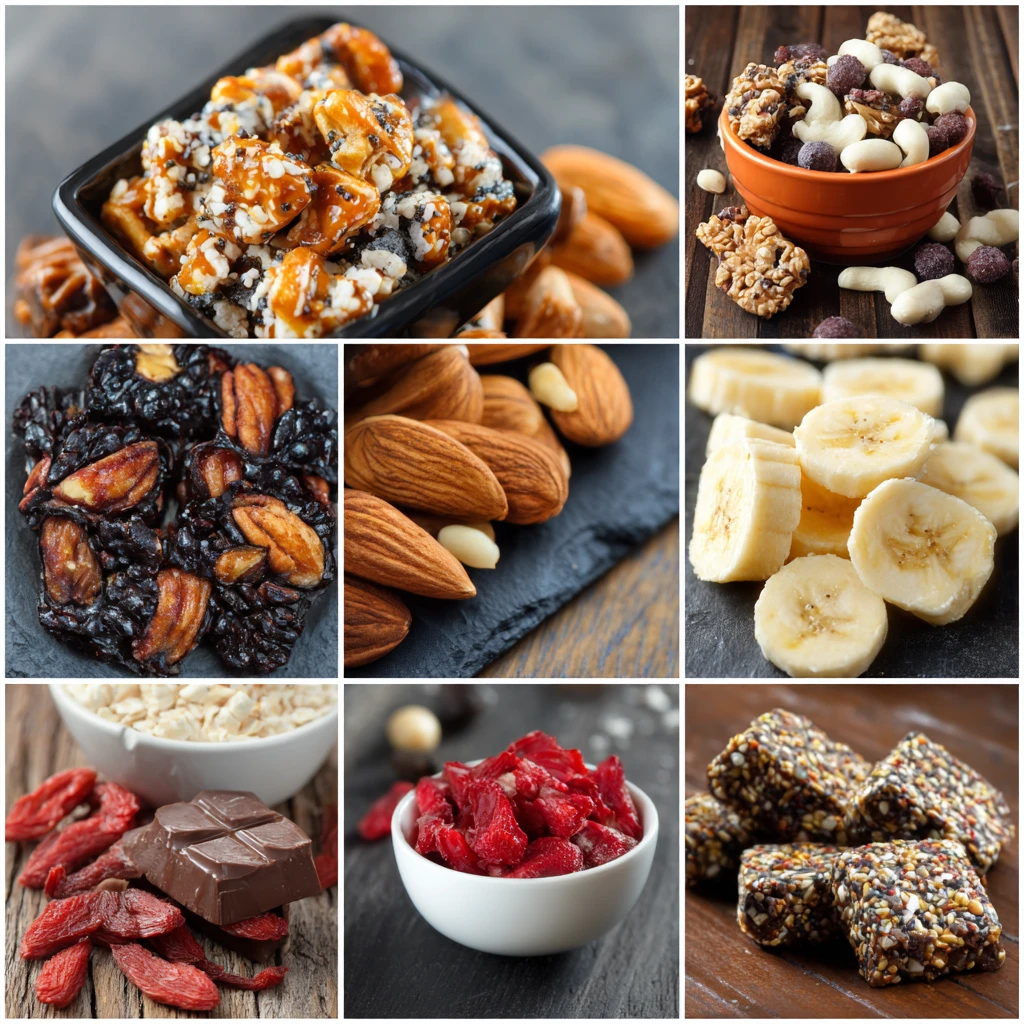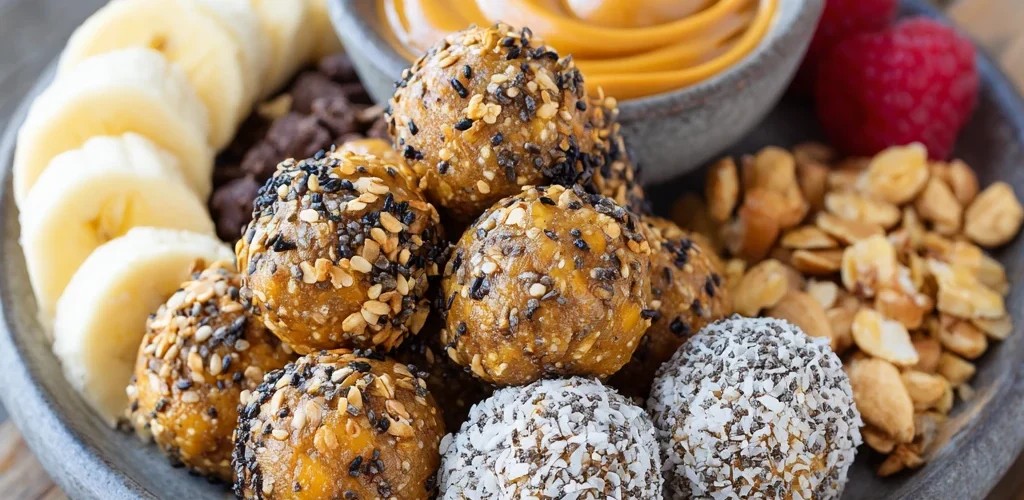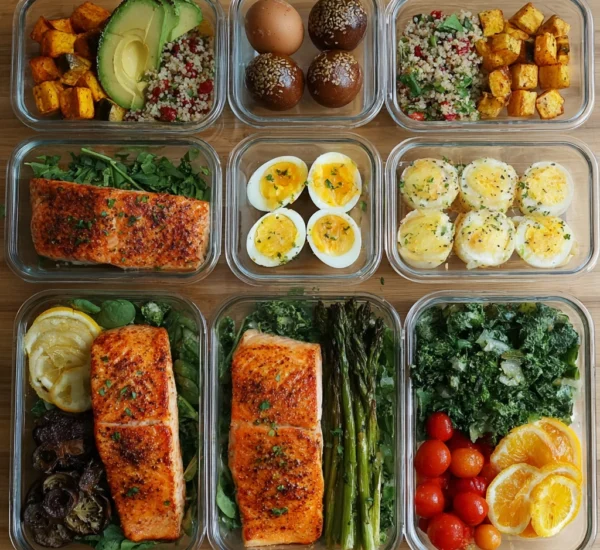Top 10 High-Protein Snack Ideas
Protein is an essential nutrient for building and repairing tissues, supporting muscle growth, and keeping you feeling full and satisfied. Snacking is a great way to incorporate more protein into your diet, especially between meals to prevent energy crashes and curb cravings. But finding tasty and convenient high-protein snacks can sometimes be a challenge. This article explores ten delicious and easy-to-prepare high-protein snack ideas to help you stay energized and on track with your health goals.

Protein-Packed Snacks: A Nutritional Powerhouse
Before diving into the snack ideas, it’s important to understand why protein is so beneficial. Protein helps regulate blood sugar levels, which can prevent those mid-afternoon energy dips. It also boosts metabolism and supports weight management. When choosing a protein snack, look for options that are relatively low in added sugars, unhealthy fats, and processed ingredients. The best snacks combine protein with other essential nutrients, such as fiber, healthy fats, and vitamins.
The Importance of Protein Timing
The timing of protein intake can also play a role in its effectiveness. Consuming protein throughout the day, including with your snacks, can help optimize muscle protein synthesis and support overall health. Aim for at least 20-30 grams of protein per meal and a smaller amount, around 10-15 grams, for your snacks.
Top 10 High-Protein Snack Ideas
Here are ten fantastic high-protein snack ideas that are easy to prepare and perfect for satisfying your hunger:
1. Greek Yogurt with Berries and Nuts
Greek yogurt is an excellent source of protein, typically containing around 20 grams per cup. Combine it with a handful of antioxidant-rich berries like blueberries, raspberries, or strawberries, and a sprinkle of nuts such as almonds, walnuts, or pecans. This snack offers a balanced combination of protein, carbohydrates, and healthy fats.
- Protein Content: Approximately 25-30 grams per serving.
- Preparation Time: 2 minutes.
2. Hard-Boiled Eggs
Hard-boiled eggs are a portable and incredibly versatile snack. One large egg contains about 6 grams of protein and is packed with essential vitamins and minerals. Prepare a batch at the beginning of the week for easy access throughout the week. Sprinkle with a little salt, pepper, or a dash of paprika for added flavor.
- Protein Content: Approximately 6 grams per egg (12 grams for two).
- Preparation Time: 1 minute (if already boiled).
3. Cottage Cheese with Fruit or Vegetables
Cottage cheese is a creamy and satisfying snack that’s loaded with protein. A half-cup serving contains about 12 grams of protein. Pair it with your favorite fruit, such as pineapple, peaches, or melon, for a sweet treat. Alternatively, combine it with chopped vegetables like cucumbers, tomatoes, or bell peppers for a savory option.
- Protein Content: Approximately 12-15 grams per serving.
- Preparation Time: 3 minutes.
4. Protein Smoothie
Protein smoothies are a quick and customizable way to boost your protein intake. Blend together protein powder (whey, casein, or plant-based), milk or almond milk, a handful of spinach, and your favorite fruits like bananas or berries. Add a tablespoon of nut butter for healthy fats and added flavor.
- Protein Content: Varies depending on protein powder and ingredients, typically 20-30 grams per serving.
- Preparation Time: 5 minutes.
5. Turkey or Chicken Roll-Ups
Lean deli meats like turkey or chicken breast are great sources of protein. Wrap a slice of turkey or chicken around a piece of cheese, avocado, or some lettuce for a satisfying and convenient snack. You can also add a smear of mustard or hummus for extra flavor.
- Protein Content: Approximately 15-20 grams per serving (3-4 roll-ups).
- Preparation Time: 5 minutes.
6. Edamame
Edamame, or steamed soybeans, is a plant-based protein powerhouse. One cup of shelled edamame contains about 18 grams of protein and is also a good source of fiber and iron. You can buy it pre-steamed and frozen, making it a quick and easy snack to prepare. Simply microwave or steam it and sprinkle with a little sea salt.
- Protein Content: Approximately 18 grams per cup.
- Preparation Time: 5 minutes.
7. Trail Mix
Create your own high-protein trail mix by combining nuts, seeds, and dried fruit. Almonds, walnuts, pumpkin seeds, and sunflower seeds are all excellent sources of protein and healthy fats. Add a small amount of dried fruit like cranberries or raisins for sweetness. Be mindful of portion sizes, as trail mix can be high in calories.
- Protein Content: Approximately 7-10 grams per ¼ cup serving.
- Preparation Time: 5 minutes.
8. Roasted Chickpeas
Roasted chickpeas are a crunchy and flavorful snack that’s packed with protein and fiber. Toss canned chickpeas with olive oil and your favorite spices, such as paprika, cumin, or garlic powder, and roast them in the oven until crispy.
- Protein Content: Approximately 7 grams per ½ cup serving.
- Preparation Time: 35 minutes (including roasting time).
9. Beef Jerky
Beef jerky is a convenient and portable snack that’s high in protein. Choose jerky that is low in sodium and added sugars. Look for options made from lean cuts of beef.
- Protein Content: Approximately 10-15 grams per ounce.
- Preparation Time: 0 minutes (ready-to-eat).
10. Protein Bars
Protein bars can be a lifesaver when you’re on the go and need a quick and convenient snack. However, it’s important to choose bars that are low in sugar and artificial ingredients. Look for bars that contain at least 15 grams of protein and are made with whole food ingredients.
- Protein Content: Varies depending on the brand, typically 15-25 grams per bar.
- Preparation Time: 0 minutes (ready-to-eat).
Maximizing Protein Intake: Tips and Strategies
To maximize the benefits of high-protein snacks, consider these tips:
- Read Labels: Pay attention to the nutrition labels and ingredient lists to ensure you're choosing snacks that are low in added sugars, unhealthy fats, and processed ingredients.
- Plan Ahead: Prepare your snacks in advance so you have healthy options readily available when hunger strikes.
- Combine Protein with Fiber: Choose snacks that combine protein with fiber, as fiber helps you feel fuller for longer and supports digestive health.
- Listen to Your Body: Pay attention to your hunger cues and eat when you're truly hungry, rather than out of boredom or stress.
- Hydrate: Drink plenty of water throughout the day to help you feel full and support overall health.
Potential Downsides and Considerations
While high-protein snacks are generally healthy, there are a few potential downsides to consider:
- Excess Protein: Consuming excessive amounts of protein can put a strain on your kidneys, especially if you have pre-existing kidney conditions.
- Hidden Ingredients: Some high-protein snacks, such as protein bars, may contain hidden sugars, artificial sweeteners, and unhealthy fats.
- Cost: High-protein snacks can sometimes be more expensive than other snack options.
- Digestive Issues: Some people may experience digestive issues, such as bloating or gas, from consuming large amounts of protein, especially if they're not used to it.
It’s important to consult with a healthcare professional or registered dietitian to determine the appropriate amount of protein for your individual needs and health status.

Frequently Asked Questions (FAQs)
Q: How much protein should I eat per day?
A: The recommended daily allowance (RDA) for protein is 0.8 grams per kilogram of body weight. However, your individual protein needs may vary depending on your activity level, age, and overall health.
Q: What are some good plant-based protein sources for snacks?
A: Excellent plant-based protein sources for snacks include edamame, nuts, seeds, roasted chickpeas, and protein smoothies made with plant-based protein powder.
Q: Are protein bars a healthy snack option?
A: Protein bars can be a healthy snack option if you choose them wisely. Look for bars that are low in sugar, artificial ingredients, and unhealthy fats, and that contain at least 15 grams of protein.
Q: Can eating too much protein be harmful?
A: Consuming excessive amounts of protein can put a strain on your kidneys and may lead to digestive issues. It’s important to consume protein in moderation as part of a balanced diet.
Q: What is the best time to eat a high-protein snack?
A: The best time to eat a high-protein snack is between meals, such as mid-morning or mid-afternoon, to help prevent energy crashes and curb cravings.



